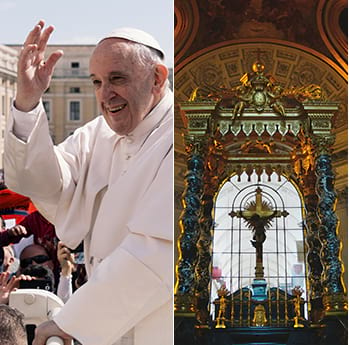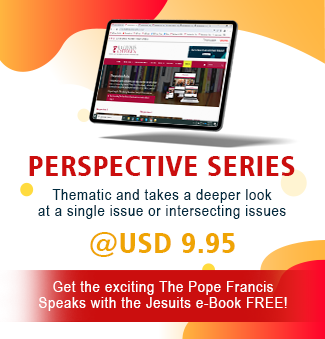The Second Vatican Council (1962-65) recovered a deep vision of the Church, reflected on religious liberty, relations with other Christians, relations with the Jewish people, as well as other issues. What principles guided the council’s discernment in its decision-making? This article will seek to respond by looking at the final texts of the council, rather than at the history of their composition and subsequent reception.
Discernment from within the Church. The guidance of the Scriptures
“Religiously hearing the Word of God and faithfully proclaiming it,” are the first words of Dei Verbum (DV), the dogmatic constitution on divine revelation, promulgated on November 18, 1965, by which the council describes its stance. With an eye on the transmission of divine revelation, the same constitution states that the magisterium “listening to it devoutly, guarding it scrupulously and explaining it faithfully” the Word of God. In short, “the teaching office is not above the Word of God, but serves it” (DV 10). The final chapter observes that the Church “has always maintained them, [the divine Scriptures] and continues to do so, together with sacred tradition, as the supreme rule of faith,” (DV 21).
Right from their first document – the constitution on the sacred liturgy, Sacrosanctum Concilium (SC), promulgated on December 4, 1963 – the council fathers appeal insistently to the Scriptures. In SC they quote them 13 times and refer to them 33 times. With regard to the Divine Office, this constitution discerns the pre-conciliar situation as unsatisfactory and mandates a richer selection of Scripture readings (cf. SC 92). Here it completes what it has already prescribed for the Eucharist as follows: “The treasures of the bible are to be opened up more lavishly, so that richer fare may be provided for the faithful at the table of God’s word. In this way a more representative portion of the holy scriptures will be read to the people in the course of a prescribed number of years” (SC 51).
The dogmatic constitution on the Church, Lumen Gentium (LG), ponders the mystery of the Church revealed through various New Testament images that let us glimpse aspects of this mystery: images drawn from sheep farming, the cultivation of olives and grapes, the construction of buildings, family life and marriage (cf. LG 6). Then it moves to teaching about the Church as the Body of Christ (LG 7). By dedicating the whole of Chapter 2 to “the People of God,” Vatican II uses that image for the Church 14 times. The same chapter also speaks of the Holy Spirit dwelling in the Church as in a temple (cf. LG 9). This prepares the way for ending the chapter on a trinitarian note and calling the Church “the People of God, the Body of the Lord, and the Temple of the Holy Spirit” (LG 17).[1] The whole of chapter 2 is richly biblical, containing 12 quotations from the Scriptures and 56 references to them, with six quotations coming from the New Testament epistles and 27 references being made to them.
This article is reserved for paid subscribers. Please subscribe to continue reading this article
Subscribe
Welcome to
La Civiltà Cattolica !
This article is reserved for paid subscribers
Please login or subscribe to continue reading this article
























